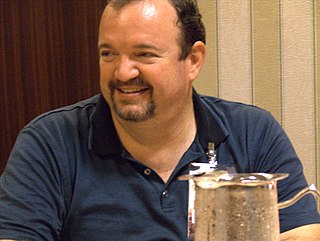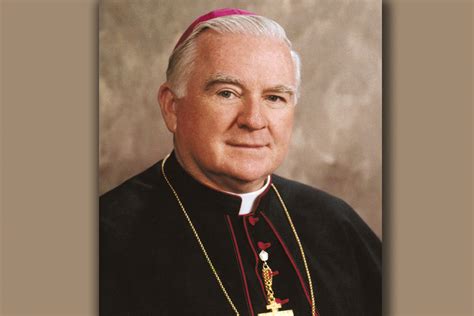A Quote by Christopher Eccleston
The film is about Joe discovering who his mother and father are and his relationship with them, and the identity crisis he goes through once he finds out who his parents are.
Related Quotes
When Christ was about to leave the world, He made His will. His soul He committed to His father; His body He bequeathed to Joseph to be decently interred; His clothes fell to the soldiers; His mother He left to the care of John; but what should He leave to His poor disciples that had left all for Him? Silver and gold He had none; but He left them that which was infinitely better, His peace.
Jesus is the prime exemplar of life in God's presence. He lived out of an awareness of the identity God had given him, not the identity the world wanted to give him; he led an active, ongoing prayer life; he took time apart from the world to be with his Father; he made his Father's agenda his agenda; he made his Father's love for people evident in tangible ways; and so on. These are all characteristics that we should emulate in our lives.
Men are confused. They're conflicted. They want a woman who's their intellectual equal, but they're afraid of women like that. They want a woman they can dominate, but then they hate her for being weak. It's an ambivalence that goes back to a man's relationship with his mother. Source of his life, center of his universe, object of both his fear and his love.
Depending on the year or the therapist he was seeing, he'd learned to ascribe just about every facet of his character as a psychological reaction to his parents' fighting: his laziness, his overachieving, his tendency to isolate, his tendency to seduce, his hypochondria, his sense of invulnerability, his self-loathing, his narcissism.
When the father dies, he writes, the son becomes his own father and his own son. He looks at is son and sees himself in the face of the boy. He imagines what the boy sees when he looks at him and finds himself becoming his own father. Inexplicably, he is moved by this. It is not just the sight of the boy that moves him, not even the thought of standing inside his father, but what he sees in the boy of his own vanished past. It is a nostalgia for his own life that he feels, perhaps, a memory of his own boyhood as a son to his father.
The Tiger Rising is, again, about a motherless child. His name is Rob Horton. He is dealing with the death of his mother, when he and his father move to a new town. And two things happen the same day that Rob gets sent home. One is he meets a girl named Sistine Bailey, who is what my mother would call "a piece of work," and he finds a real tiger in a cage in the woods behind the motel where he lives with his dad. And that's the story: what happens with the Sistine tiger, the real tiger and Rob's grief.
Let no one imagine that he will lose anything of human dignity by this voluntary sell-out of his all to his God. He does not by this degrade himself as a man; rather he finds his right place of high honor as one made in the image of his Creator. His deep disgrace lay in his moral derangement, his unnatural usurpation of the place of God. His honor will be proved by restoring again that stolen throne. In exalting God over all, he finds his own highest honor upheld.




































